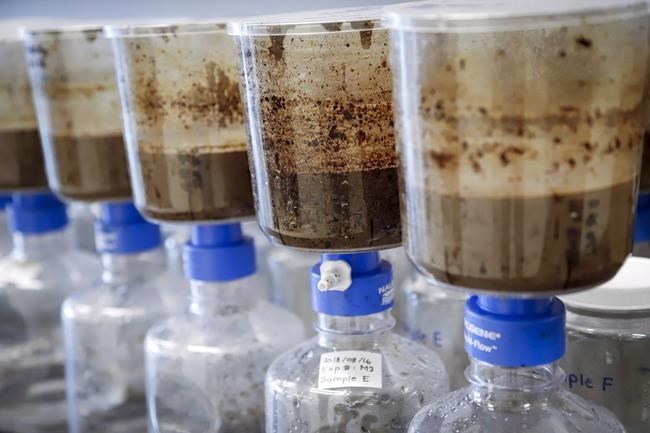OTTAWA — The head of the Alberta Energy Regulator has refused to tell a parliamentary committee investigating releases from an oilsands tailings pond about when the provincial government was told about the problem.
Laurie Pushor was questioned Monday by the House of Commons environment and sustainable development committee about a nine-month gap between when Imperial Oil learned one of its tailings ponds may have been leaking and when area First Nations and governments were notified.
"When was any representative from the provincial government notified?" asked Edmonton New Democrat member of Parliament Heather McPherson.
Pushor, who was asked the question three times, said he preferred not to answer.
"We do have a review that is being conducted by our board of directors," he said.
"I think it's best that we let that review be a full independent review. All of those answers and all of those questions will be addressed in that review."
That report will be released, he said. The regulator's board did not immediately respond to a question about the inquiry's terms of reference or if anyone had been hired for it.
At McPherson's request, Pushor testified under oath, the only witness to do so in three days of hearings on the Imperial leaks. Conservative MP Greg McLean apologized to Pushor "for the way you were treated differently."
In an emailed statement, McPherson said she was "exasperated" by Pushor's response.
"His excuse — citing his internal investigation — has no merit whatsoever," she wrote.
"He is accountable to Parliament. He is accountable to Canadians. Albertans have a right to know when the (regulator) informed (Alberta's governing United Conservative Party) about the seepage and what the government’s response was."
Pushor apologized for the notification delay and pledged improvement.
"It is clear that we did not meet community expectations in this case," he said.
Imperialfirst noticed discoloured water by its pond in May 2022 and knew it was contaminated with tailings by August.
Federal Environment Minister Steven Guilbeault and his provincial counterpart Sonya Savage have both said they didn't learn about the seepage — as well as a second 5.3-million litre wastewater release — until the regulator issued a protection order on Feb. 6.
On Monday, Pushor said he personally told the province about the releases before then.
"I communicated with the provincial government one or two days prior to the environmental protection order being issued," he said.
But for most of his testimony, Pushor repeated assurances that the regulator was ensuring that none of the toxins from the release had entered drinking water or affected wildlife. Imperial has been required to install dozens of new monitoring wells and has made public all the relevant data from them, he said.
It's the company's job to inform communities about emergencies, he said.
"The first communication should come from the producer," Pushor said.
In earlier testimony Monday, Indigenous groups from the area called for reform to how Alberta's oilsands are regulated, with some asking for more federal involvement.
"Canada needs to be a larger presence in the mismanaged oilsands," said Carmen Wells, speaking for the Fort Chipewyan Metis Nation.
"These decades of poor regulation require an overhaul, where (the nation) is not at the mercy of the decisions of Alberta's policymakers, who are willing to sacrifice northeastern Alberta."
Her testimony echoed that from other First Nations last week. Representatives of six nations, including the Athabasca Chipewyan and the Mikisew Cree, testified they had no remaining trust in the regulator.
They called for the agency to be disbanded.
This report by The Canadian Press was first published April 24, 2023.
— By Bob Weber in Edmonton
The Canadian Press



